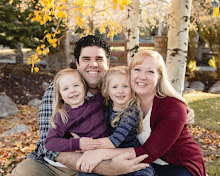This book was not what I was expecting. I don't know what I was expecting, especially with such a title, but this wasn't it. I think that threw me off at first, as I tried to plow through the first section and understand who the author was and who his father was. But as I continued to plow and read and understand and pull the pieces together, I got sucked into Nick Flynn's story and the simultaneous tragedy and wonder of it all.
I really appreciated the starkness of the voice, the unapologetic tone that Flynn uses. There is a lot to potentially hide from and be ashamed of, but he sets is all forward. He doesn't excuse his father or himself, and that somehow makes their actions okay. I didn't feel the need to pass judgment because they were just facts, just the building blocks of a story. It also made me feel secure, made me feel like things would be okay. I trusted the narrator's voice to tell me the whole story and give it to me straight.
I can appreciate the structure of the memoir as a whole, though parts of it didn't work for me. I really appreciated the dates at the beginning of most chapters. Especially when the narrative was switching from the past to the recent past, those dates helped ground me and put the story into context. I also appreciated the chapters that were in a different format, though sometimes I felt like their meaning was getting lost in the form, like the Santa screenplay. Overall, I felt like I knew where it was headed from the beginning and that made it interesting to put the pieces together. I felt like the ending was a little bit abrupt, and I wanted something a little more satisfying or definitive.
What I most appreciated was this examination of the relationship between father and son, between brothers, between mother and son. But mostly the father-son relationship. It becomes complex, real relationships between people and abstract inheritances of names and dispositions. I loved what Flynn wrote in the chapter called "Ulysses" on pages 23: "Many fathers are gone. Some leave, some are left. Some return, unknown and hungry. Even if around, most disappear all day, to jobs their children only slightly understand..." There is this aspect of absence that is fairly universal in all fathers, and this makes Flynn's experience to one very small degree universal.
Subscribe to:
Post Comments (Atom)

I'm glad you commented on the structure of the memoir, Kate, and I think we do need to talk about the Santa play and the ending in class today--those are definitely the pieces of the structure that I also felt the least moved by.
ReplyDeleteI hadn't thought about it but I agree that I trusted his voice because of his straightforwardness and facts. It helped ease my way through the depressing and difficult aspects of his life without fearing the worst. It was like a security of some sort that guides you through a read.
ReplyDeleteI like the comparisons to Noah and Ham. When he touches on a familiar story, puts his story in a literary/mythological context. Especially the notion that Ham was cursed because he saw his father naked--saw him for who he really was.
ReplyDeleteYeah, the Santa play... It annoyed me less this second time through but still was not my favorite. I do wonder why he chooses to cast daughters in the play, rather than sons, though the book is clearly about fathers and sons. Also in "Fucking Gonuts" one actor is "Marie" and one is "Son." "Son" is clearly Flynn but he doesn't call himself "Me."
A friend's recent analysis of Flynn was that his poetry was better than his memoir. He accused Another Bullshit Night... of being "fake literary." And I think he might be right, especially with the play portions... I think he might be trying too hard, hedging, hiding behind this ambiguous play format.
But I do love that title!
Interesting relfection Kate...I did feel that he was being very straight forward throughout most of the book, however this led me to believe that he would be straight forward about everything, but he kept intimate details of his mother's death and his feelings at bay. Do you think he discussed her death enough?
ReplyDelete